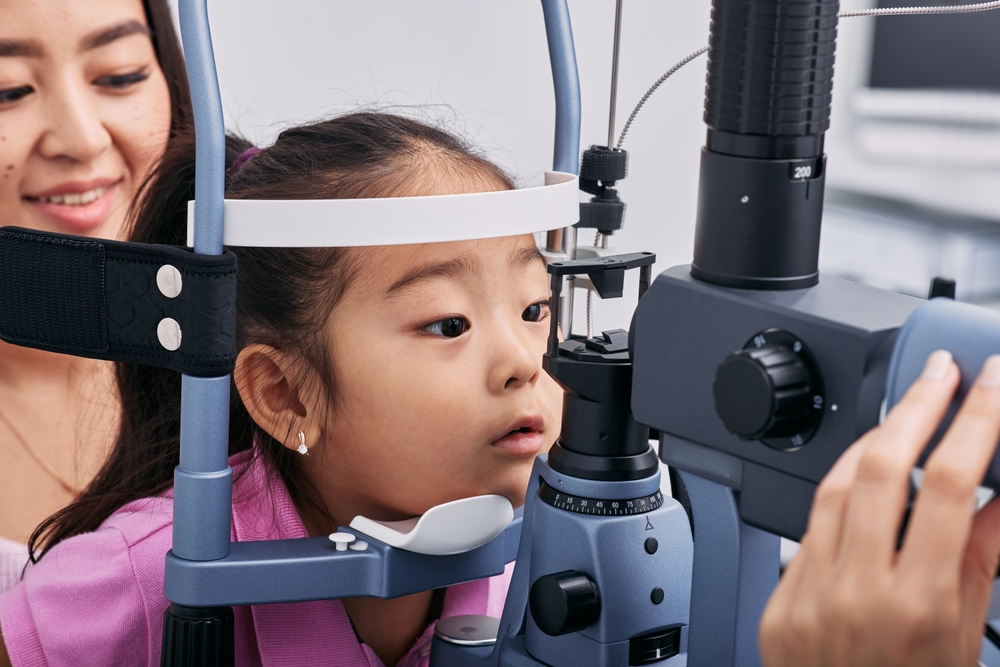
How Is Myopia Treated In Children?
Myopia, also known as nearsightedness, is a common vision condition that affects many children. If left untreated, it can lead to more serious eye problems later in life. By understanding the symptoms, and importance of regular eye exams, you can take proactive steps to manage your child's myopia and ensure they maintain clear, comfortable vision.
What is Myopia?
Myopia is a refractive error that causes distant objects to appear blurry, while closer objects remain clear. This happens because the eye is slightly longer than normal or the cornea (the clear front part of the eye) is too curved. As a result, light doesn't focus properly on the retina at the back of the eye, leading to blurred distance vision.
Myopia typically develops in childhood and can worsen as a child grows. It's important to address myopia early on to prevent it from progressing and causing further vision problems.
Common Symptoms of Myopia in Children
The primary symptom of myopia in children is blurred vision when looking at distant objects, such as the whiteboard at school or road signs. Other common symptoms include:
· Squinting or straining to see clearly
· Headaches or eye strain after close-up work
· Difficulty seeing the board or TV from across the room
· Frequent rubbing of the eyes
If you notice any of these symptoms in your child, it's important to schedule a comprehensive eye exam with an optometrist.
The Importance of Regular Pediatric Eye Exams for Early Detection
Regular pediatric eye exams are essential for early detection and management of myopia in children. The American Optometric Association advises that children undergo their first comprehensive eye exam at 6 months, with follow-up exams at ages 3, 5, and annually thereafter. These exams enable optometrists to assess refractive error, monitor myopia progression, and recommend treatments to slow or prevent worsening. Early detection and intervention help children maintain clear vision and reduce the risk of more severe eye issues later in life.
Myopia Treatment Options
The most common treatments for myopia in children are glasses or contact lenses. These corrective lenses help focus light properly on the retina, improving distance vision. Glasses are the most straightforward and affordable option for treating myopia in children. They are easy to use, and children can quickly adapt to wearing them. Glasses can be updated as the child's prescription changes over time.
Contact lenses may be a better option for some children, especially those who are active in sports or prefer not to wear glasses. Contact lenses can provide more natural-looking vision and may be less prone to distortion. However, they require more care and maintenance than glasses.
Your optometrist will help you determine the best corrective lens option for your child based on their age, lifestyle, and the severity of their myopia.
Myopia Control Interventions
There are also various myopia control interventions that can be used to slow the progression of myopia in children:
• Specialized lenses: Certain types of eyeglasses, such as progressive lenses or bifocal lenses, can help reduce the eye's focus on close-up tasks and slow myopia progression.
• Pharmaceutical interventions: In some cases, eye drops containing low-dose atropine or other medications may be prescribed to help control myopia progression.
• Corneal reshaping: Procedures like orthokeratology (Ortho-K) or corneal refractive therapy (CRT) can temporarily reshape the cornea to improve vision and slow myopia progression.
• Behavioral interventions: Encouraging children to spend more time outdoors, limit screen time, and take regular breaks from close-up activities can help reduce the risk of myopia development and progression.
Your optometrist can help you determine the most appropriate myopia control interventions for your child based on their specific needs and the severity of their condition.
Schedule Your Child’s Eye Exam with Bogey Hills Vision Center Today
Myopia is a frequent vision issue in children that can lead to significant long-term effects if not properly addressed. By recognizing the symptoms of myopia and prioritizing regular eye exams, you can take proactive measures to manage your child's condition and help them maintain clear and comfortable vision.
If your child is experiencing symptoms of myopia or is due for a comprehensive eye exam, schedule an appointment with Bogey Hills Vision Center. We can provide personalized care and the myopia management solutions to help your child achieve their best possible vision. Contact our office in Saint Charles, Missouri, by calling (636)-946-1176 to book an eye exam today.









